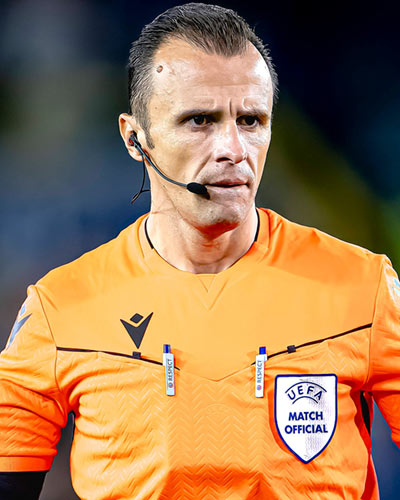Irfan Peljto: A Rising Star in Sports Management

Introduction
Irfan Peljto is increasingly becoming a noteworthy name in the world of sports management. His contributions to the field, particularly in developing young talent and improving sports organisations’ strategies, mark him as a significant figure in this competitive industry. As the sports landscape evolves, the relevance of effective management and strategic planning becomes paramount, making Peljto’s work particularly significant.
A Journey Through Sports Management
Hailing from a background steeped in sports, Irfan Peljto has dedicated his career to enhancing the operational capabilities of sports teams and organisations. His journey began in youth coaching, where he garnered insights into the needs and challenges faced by aspiring athletes. These experiences have proven invaluable as he transitioned into management roles.
In recent months, Peljto has been instrumental in launching various initiatives aimed at providing support to young athletes. His current project, a mentorship programme, aims to connect experienced professionals with emerging talents, fostering an environment of growth and professionalism in sports.
Recent Achievements
Peljto has been recognised for his innovative approaches within the industry, particularly for his ability to leverage technology in sports management. This includes the implementation of data analytics to help teams make informed decisions regarding player development, training schedules, and performance evaluations. This forward-thinking mindset has garnered Peljto numerous accolades, providing a benchmark for excellence within sports management.
Furthermore, his recent collaboration with local sporting authorities to enhance grassroots sports initiatives demonstrates his commitment to nurturing talent from an early age. This partnership aims to address the existing gaps in training facilities and coaching availability, ensuring that aspiring athletes have access to the necessary resources.
Conclusion
Irfan Peljto’s rise in sports management represents a crucial shift towards a more strategic and supportive approach in the industry. As he continues to champion initiatives that support young athletes and empower sports organisations, his contributions are likely to inspire a new generation of sport professionals. The implications of his work extend beyond individual athletes; they reverberate throughout the broader sports community, promoting growth, equality, and excellence in sports management. In the coming years, we can expect Peljto’s influence to expand, potentially reshaping the future of sports as we know it.









